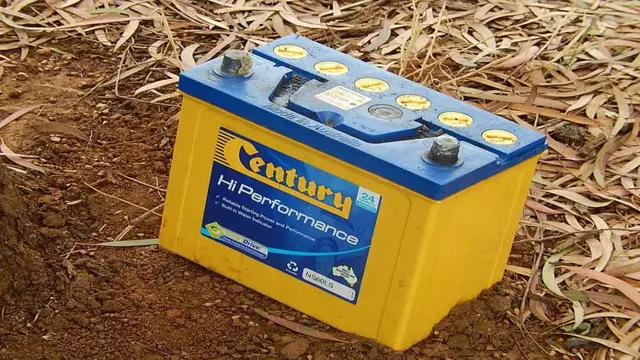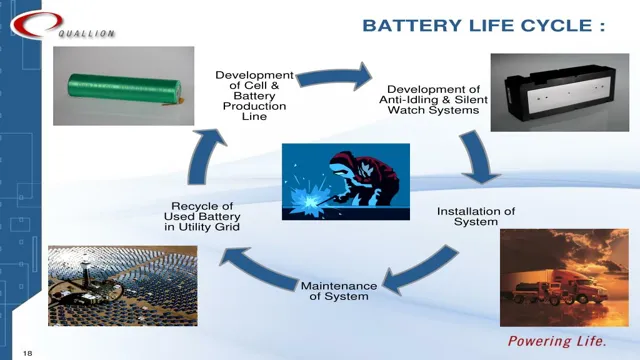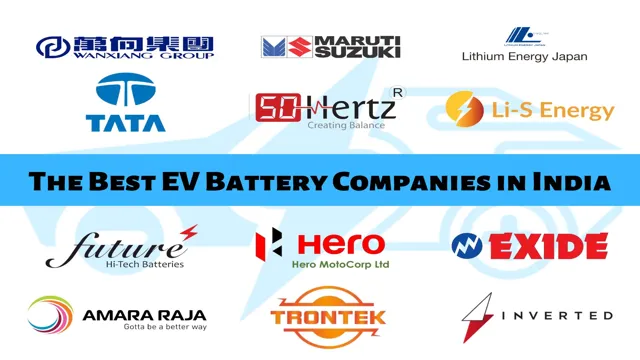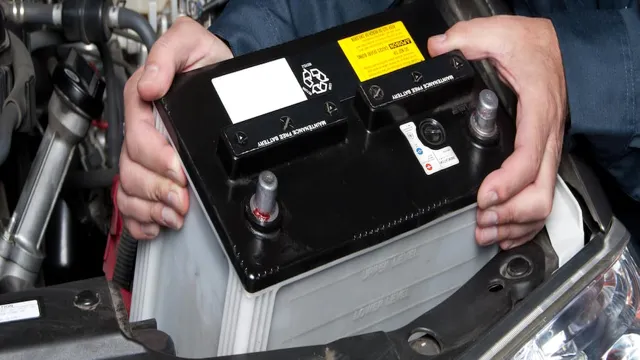The Electrifying Future of Cars: How Electric Car Batteries are Revolutionizing Transportation
The future of electric car batteries looks bright and promising as the industry moves towards innovation and development. With the rapid growth of the electric vehicle market, companies, researchers, and scientists are actively seeking ways to create batteries that are more efficient, eco-friendly, cost-effective, and sustainable. Electric car batteries are the powerhouse of electric vehicles, and advancements in battery technology could revolutionize the way we live and travel.
The demand for longer-lasting batteries, faster charging times, and higher energy density is driving the development of more advanced and affordable battery solutions that will benefit both consumers and the environment. As electric cars continue to gain popularity, the need for more powerful and reliable batteries becomes increasingly pressing. From lithium-ion to solid-state, new battery technologies are being explored to help meet the demands of the market and pave the way for a more sustainable future.
In this blog post, we will explore the latest developments in electric car batteries, the challenges faced by the industry, and the potential impact of these advances on the future of transportation. So, buckle up and get ready to discover the exciting world of electric car batteries!
Advancements in Battery Technology
It’s an exciting time for electric car enthusiasts with the advancements in battery technology. The future of electric car batteries looks promising, with research and development leading to improved performance, longer range capabilities, and faster charging times. Lithium-ion batteries are currently the standard for electric cars, but new technologies such as solid-state batteries and lithium-sulfur batteries are being developed to enhance the performance even further.
These advancements will reduce the cost of production and make electric cars more accessible to consumers. With the increasing demand for sustainable transportation, it’s no doubt that electric cars are becoming the way of the future, and battery technology will continue to play a significant part in driving this change. As electric car batteries become more advanced, the day when electric cars dominate our roads is not too far away.
Solid State Batteries: The Game Changer
Solid State Batteries Solid state batteries are the latest buzz in the world of battery technology and are set to revolutionize the way we use batteries. Unlike traditional lithium-ion batteries, solid-state batteries use solid electrolytes instead of liquid ones, which allows for faster charging, longer life, and a higher energy density. Solid-state batteries promise to eliminate the risk of fires associated with traditional lithium-ion batteries, making them the safer and more reliable choice.
With their higher energy density, they will be able to power larger devices for longer periods, making them suitable for use in electric cars, smartphones, and other high-powered electronics. The potential of solid-state batteries to transform the world as we know it is incredible, and it’s only a matter of time before they become the norm in battery technology.
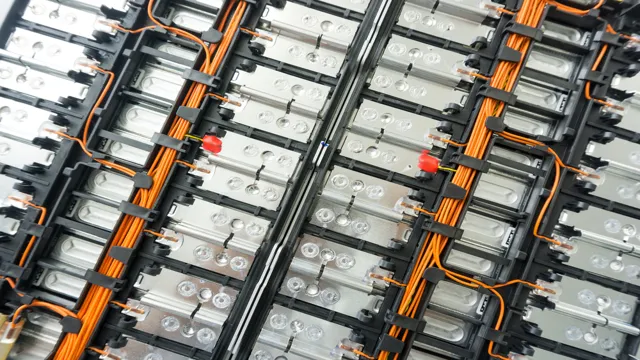
Lithium-Ion Batteries: Still Dominating
Lithium-Ion Batteries Lithium-ion batteries have been around since the 1990s, and since then, they have become the go-to power source for many portable electronic devices, such as laptops, smartphones, and electric cars. Despite the rise of alternative batteries, Lithium-ion batteries still dominate the market for a good reason. They are lightweight, rechargeable, and have a high energy density.
Advancements in Battery Technology have led to the development of lithium-ion batteries that can hold more energy, last longer, and charge faster. One of the latest innovations is solid-state batteries, which use a solid lithium-ion electrolyte instead of the liquid electrolyte used in traditional batteries. This technology promises to bring significant improvements in safety, efficiency, and environmental friendliness, making lithium-ion batteries the ideal power source for the future.
As the demand for cleaner energy solutions continues to rise, researchers and manufacturers alike are working hard to make lithium-ion batteries even better than before.
Electric Cars’ Range and Battery Efficiency
As we head towards a more sustainable future, we can expect electric car battery technology to keep improving. Currently, the average electric car can cover around 100-300 miles on a single charge, but with advancements in battery efficiency, we can hope for even greater distances in the future. One of the key factors affecting electric car range is the battery itself.
As new materials and designs are being developed, batteries are becoming lighter, more durable and capable of storing more energy in a smaller space. This means that even smaller electric cars can have a longer driving range without compromising on other features such as speed or safety. With so much development in this field, it’s not surprising that analysts predict that electric car batteries will last longer in the future than they do today, with a driving range of up to 700 miles a possibility.
This would mean electric car owners could go for long trips without worrying about their car running out of power. As more people become aware of the benefits of electric cars, and advancements in battery efficiency continue, it’s only a matter of time before electric cars become the norm.
How Driving Conditions Affect Electric Vehicles
When it comes to electric cars, one of the biggest concerns for drivers is the vehicle’s range and battery efficiency. Different driving conditions can affect these aspects and therefore affect the car’s overall performance. For example, driving at high speeds or in extreme weather conditions, such as extreme cold or heat, can quickly drain the car’s battery.
Additionally, driving uphill can also reduce the range of an electric vehicle. However, if you’re driving in optimal conditions, such as on flat terrain with moderate temperatures, you’ll likely get the longest range possible from your electric car. It’s important to keep in mind these factors when planning your trip and determining the distance your EV can travel.
So, to maximize your electric vehicle’s range and efficiency, it’s crucial to be mindful of your driving conditions and optimize your driving habits accordingly.
Battery Swapping vs. Fast Charging
Electric car owners have always been concerned about their vehicle’s range and battery efficiency. Battery swapping and fast charging are two popular ways to address this issue. Battery swapping involves replacing a drained battery with a fully charged one, while fast charging replenishes the battery’s charge quickly.
Both options have their pros and cons. Battery swapping is convenient since it takes only a few minutes to switch batteries, allowing for extended trips without worrying about range anxiety. However, it requires a network of charging stations that can store and replace batteries.
In contrast, fast charging is more widely available and doesn’t require additional infrastructure. Still, it can take over an hour to recharge a battery fully, making long-distance trips challenging. Ultimately, it comes down to personal preference and usage habits.
Those who frequently travel long distances may prefer battery swapping, while fast charging might suffice for daily commutes. Regardless of the choice, electric car owners can enjoy sustainable and efficient transportation that benefits both the environment and their wallets.
Wireless Charging: Is It the Future?
Wireless charging is an increasingly popular topic in the world of electric cars, and it’s easy to see why. One of the biggest concerns car owners have with electric vehicles is their range and battery efficiency. With wireless charging, however, drivers could potentially charge their cars on-the-go, eliminating the need to stop and plug-in at charging stations.
Picture a mobile phone that charges wirelessly on a pad, but now in the form of a car. This technology could change the way we drive and revolutionize the electric car industry. Of course, there are still concerns around the practicality and infrastructure required for widespread wireless charging to become a reality.
But with advancements in technology and growing interest in sustainability, it’s possible that wireless charging will become the future of powering electric cars.
Environmental Impact and Cost of Electric Car Batteries
As electric cars continue to gain popularity, the future of electric car batteries remains a critical concern. While electric cars are more eco-friendly than traditional gasoline-powered vehicles, the environmental impact of their battery production cannot be ignored. The production process of electric car batteries requires a significant amount of energy, which mainly comes from non-renewable resources such as coal.
However, the good news is that advancements in battery technology are gradually reducing the negative environmental impact of battery production. Additionally, the cost of electric car batteries has been a significant barrier to increasing adoption rates, but this too is changing. Battery prices have been dropping every year, thanks to increased demand and the development of more efficient production methods.
These trends suggest that the future of electric car batteries is bright, and we can expect to see more eco-friendly and affordable electric cars on the roads in the near future.
Sustainability Concerns with Electric Car Batteries
As the world shifts towards electric cars, there are growing concerns regarding the sustainability of their batteries. One major issue is the environmental impact of producing and disposing of these batteries. The manufacturing process emits greenhouse gases and requires extensive mining of minerals such as lithium, cobalt, and nickel.
The disposal of used batteries can also release harmful chemicals into the environment if not properly recycled. Additionally, the cost of electric car batteries remains high, making the switch to electric vehicles unaffordable for many. However, advancements in technology and a push towards sustainable practices may provide solutions to these concerns in the future.
As consumers, we can also play our part by considering the environmental impact of our choices and supporting companies that prioritize sustainability.
The Cost of Producing High-Quality Batteries
Producing high-quality batteries for electric cars comes with an environmental cost that cannot be ignored. These batteries often require large amounts of rare and valuable minerals, such as cobalt, nickel, and lithium, which are mined from the earth’s crust in a process that generates a significant amount of greenhouse gas emissions and other harmful byproducts. Additionally, the production process of these batteries consumes a lot of energy and requires massive amounts of water to cool the production lines.
All of these factors contribute to the overall cost of battery production, making it a costly and environmentally taxing venture. However, the hope is that as battery technology continues to advance, the environmental impact and costs of production will become more manageable.
What the Future Holds for Electric Car Batteries?
The future of electric car batteries looks bright, with advancements in technology leading to longer ranges and quicker charging times. Scientists and engineers are working tirelessly to develop new battery chemistries that can store more energy, last longer, and require less maintenance. One promising development is the use of solid-state batteries, which are safer, more energy-dense, and potentially cheaper than traditional lithium-ion batteries.
Another exciting innovation is wireless charging, which could allow electric cars to charge while on the move or parked in designated spots. As electric vehicles become more popular and widespread, the demand for better batteries will only increase. This means that we can expect to see even more breakthroughs in this field, making electric cars more practical and affordable for everyone.
So, the electric car batteries future is looking bright, with plenty of potential for further improvements and advancements.
Conclusion
As we look to the future of electric car batteries, the possibilities are truly electrifying. With advancements in technology and increased demand for sustainable transportation, we can anticipate longer ranges, faster charging times, and more affordable prices. It’s clear that the days of gas-guzzling automobiles are numbered, and the era of electric vehicles is on the rise.
From Tesla to Volkswagen, major car manufacturers are investing heavily in battery research and development, and the race is on to create the most efficient and innovative battery yet. So buckle up and get ready for a green revolution—the electric car battery future is charged, exciting, and ready to roll!”
FAQs
What is the current status of electric car batteries?
The current status of electric car batteries is promising. While early versions had limited range, newer batteries can travel hundreds of miles before needing a recharge.
How long do electric car batteries last?
Electric car batteries can last for several years, depending on factors such as the make and model of the car, the climate in which it’s driven, and how well the battery is maintained.
Will electric car batteries become more affordable in the future?
Yes, electric car batteries are expected to become more affordable as technology advances and production costs decrease. This is likely to make electric cars more accessible to a wider range of consumers.
What are some recent advances in electric car battery technology?
Recent advances in electric car battery technology include improved energy density, longer lifespans, and faster charging times. Researchers are also exploring new battery chemistries that could further improve these characteristics.


